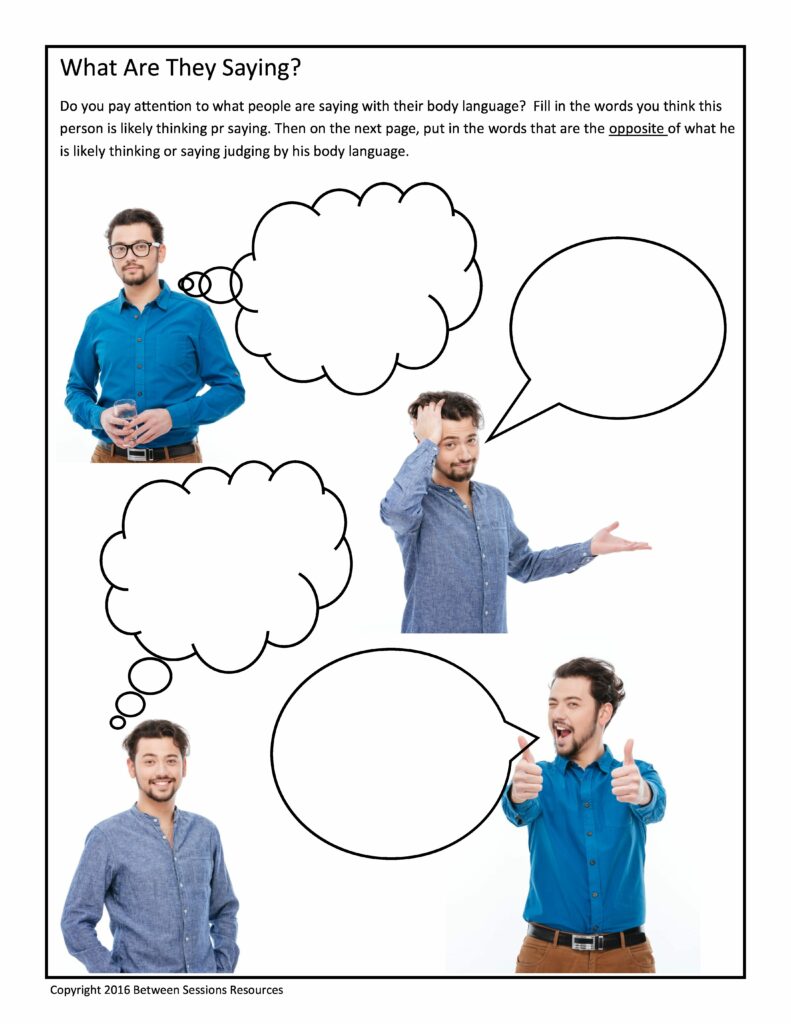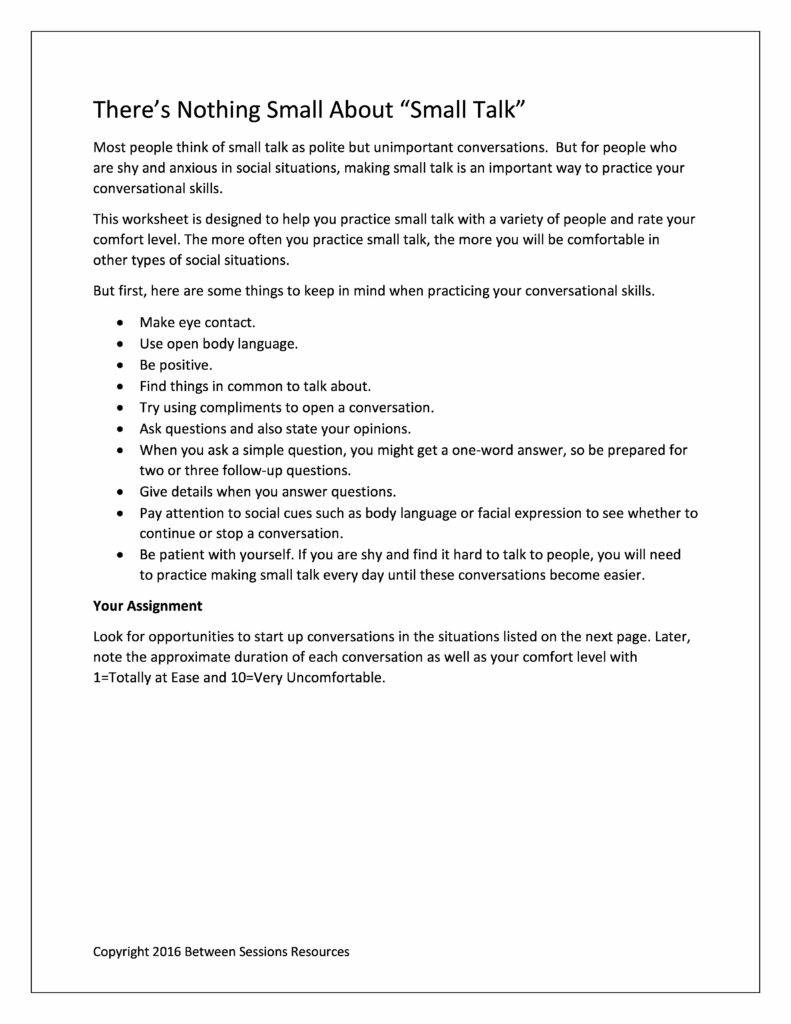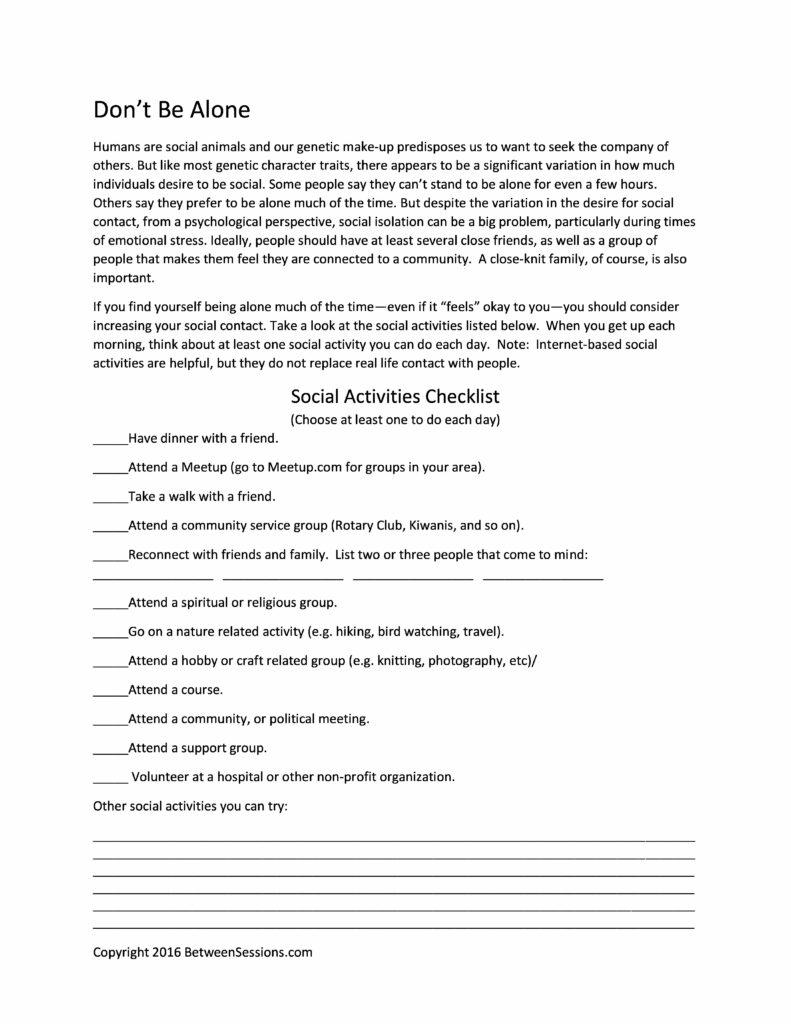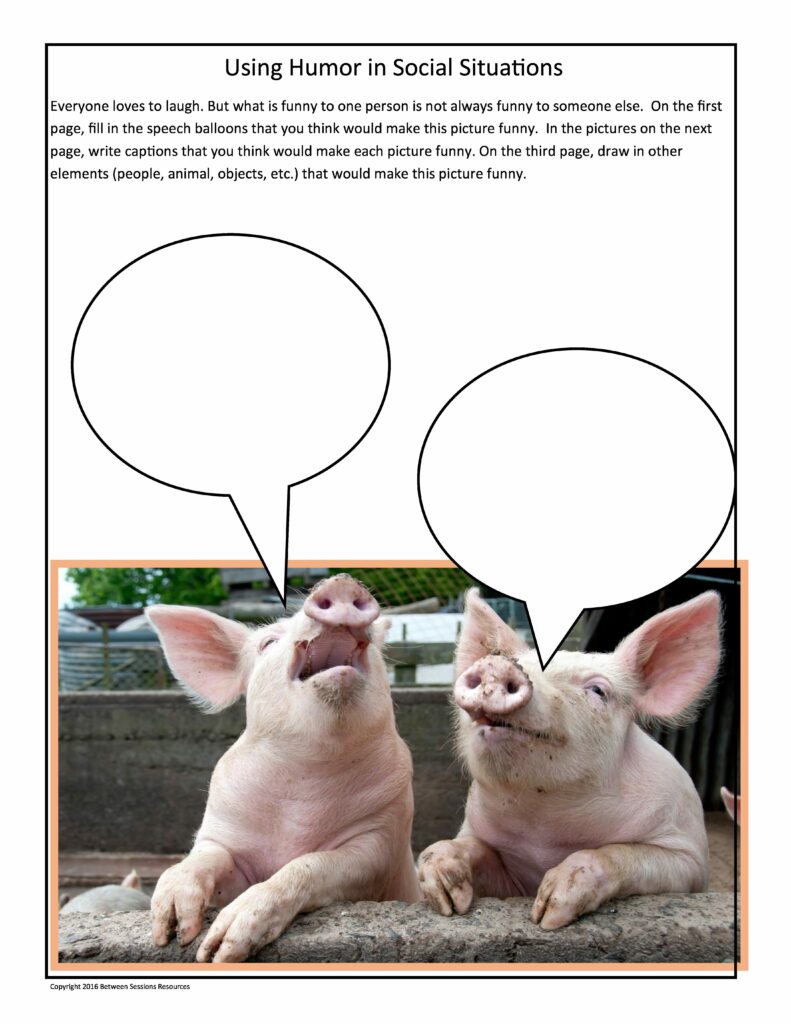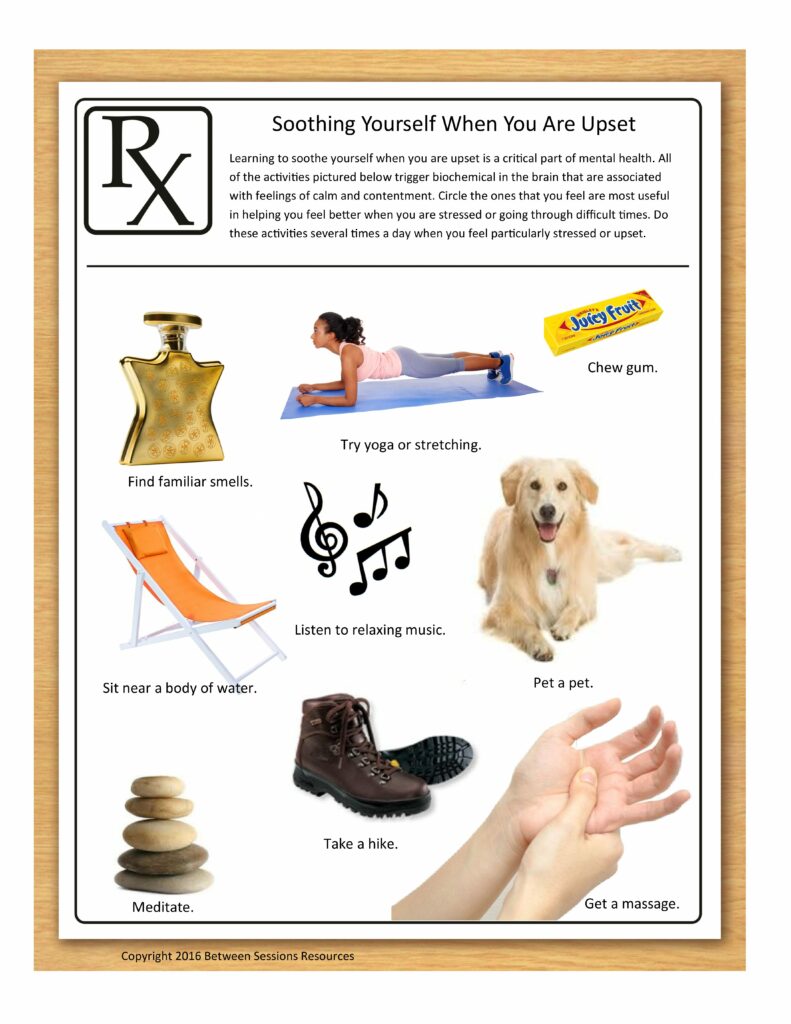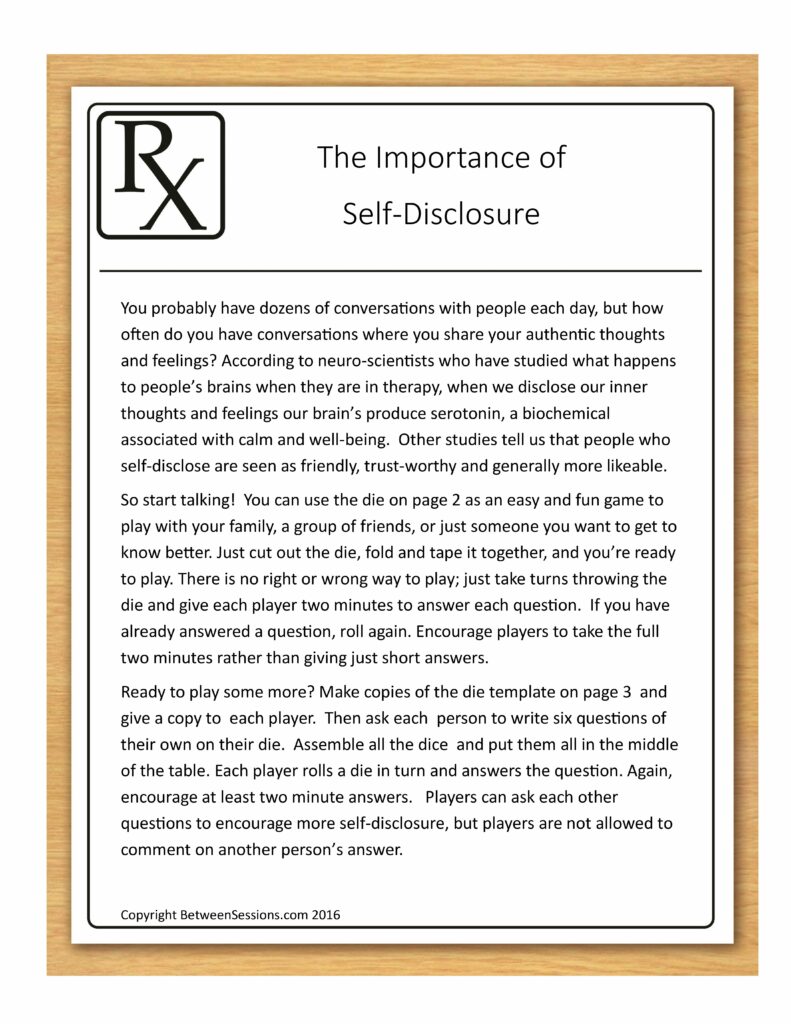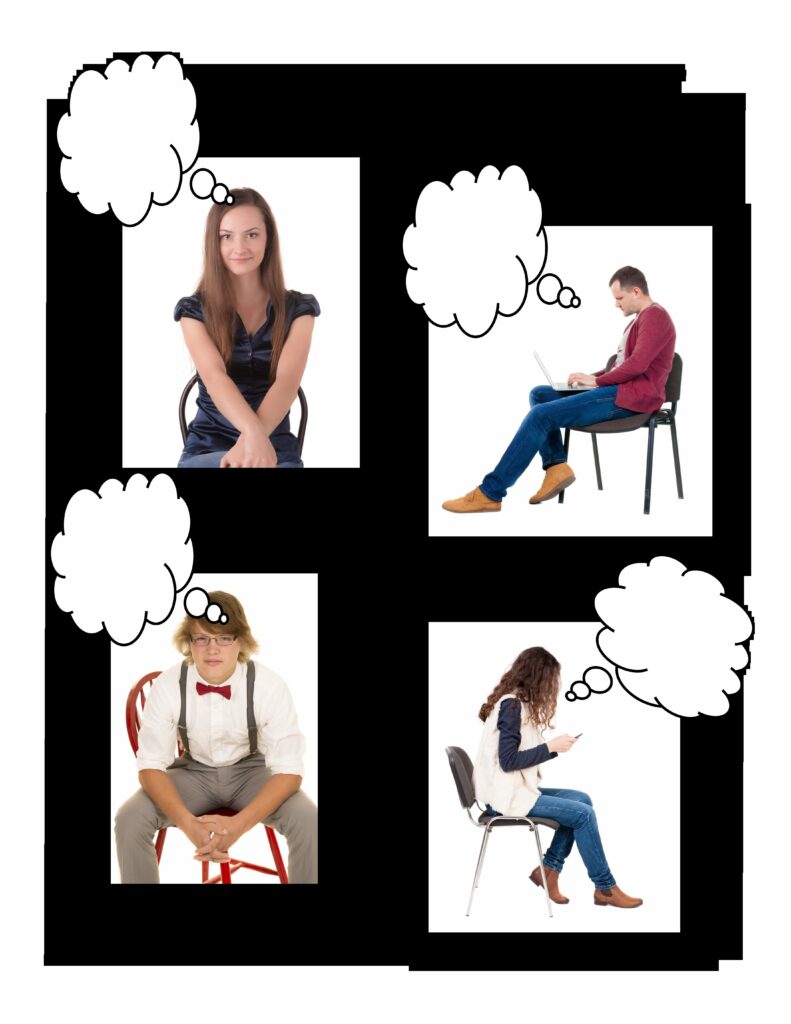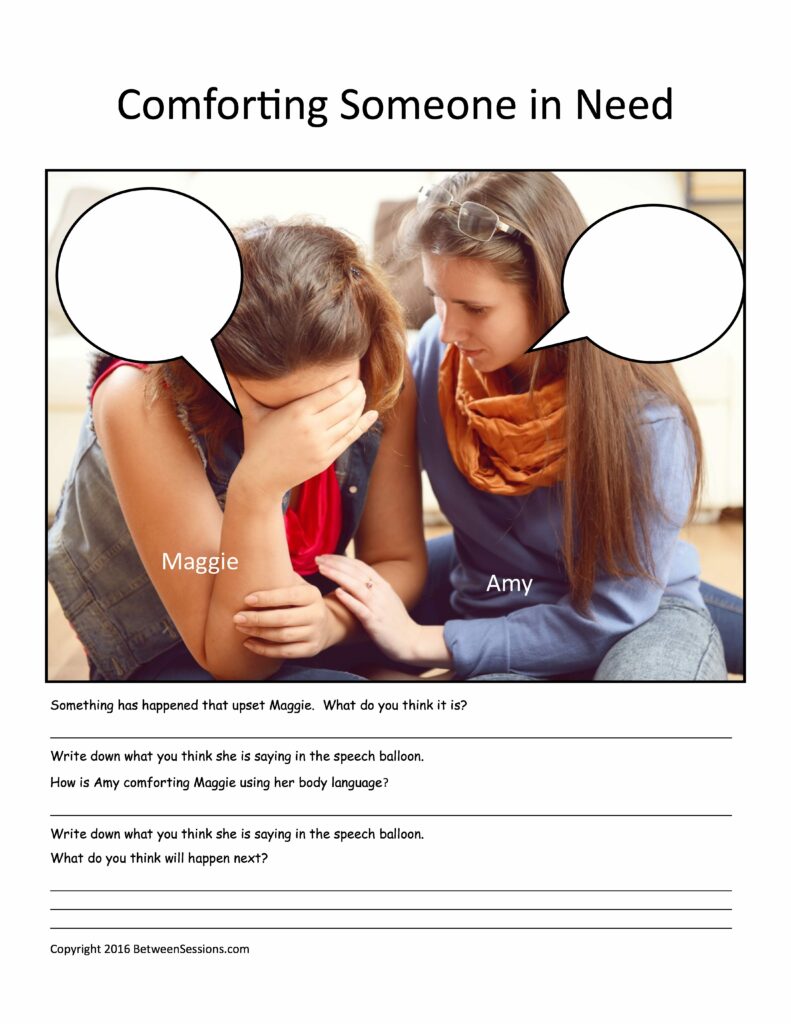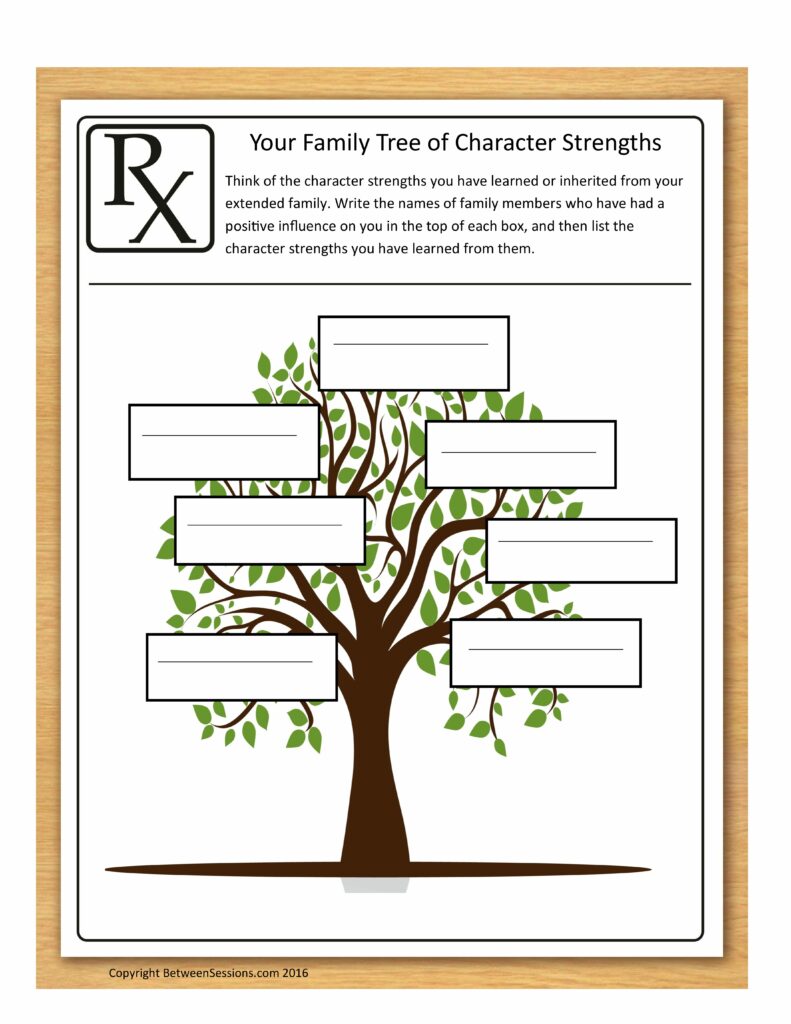This worksheet asks people to imagine what a person is thinking or saying by simply looking at his body language. (social skills, Asperger Syndrome, social anxiety, 1216)
This worksheet is designed to help people with social anxiety practice simple conversational skills. The worksheet gives tips on how to handle social conversations and assignments to practice spontaneous conversations. (shyness, social anxiety, Asperger Syndrome, 2016)
This worksheet is designed to help people see the importance of social activities as an integral part of mental health. It gives individuals a list of possible social activities to do each day. (Asperger Syndrome, depression, social development, 0616)
This worksheet is designed to help teenagers think and talk about using humor in social situations. PDF (social skills, Asperger Syndrome, conversation skills, bullying)
Learning to calm down when you are upset is a critical part of emotional intelligence. This worksheet shows seven activities that trigger the production of biochemicals which calm the mind and body A second page asks people to keep track of which activities they use and how these activities affect their mood. (0316, DBT, ACT, emotional regulation)
This worksheet is designed to help people think about what is really important for them to communicate to others. It asks people to design a billboard for the world to see and to identify one specific person they want to read it. PDF (0316, art therapy, communication)
This simple game is designed to help people reveal their thoughts and feelings to others and to reinforce the mental health benefits of self-disclosure. It consists of a die with six questions that can be printed and assembled. A blank template die can be used to custom-make other self-disclosure games. (0216, communication, social skills)
This worksheet is designed to help people develop a “body language” vocabulary. The worksheet can help people see that we can read the non-verbal communication of others, and then respond appropriately. PDF (0216, non-verbal communication, body language, Asperger’s Syndrome, social skills)
This worksheet teaches teens the importance of paying attention to a person’s body language when comforting a friend. (0216, body language, communication, friendship, Asperger Syndrome)
This worksheet is designed to help people identify the people in their families who help shaped their character. (character strengths, 0116)

